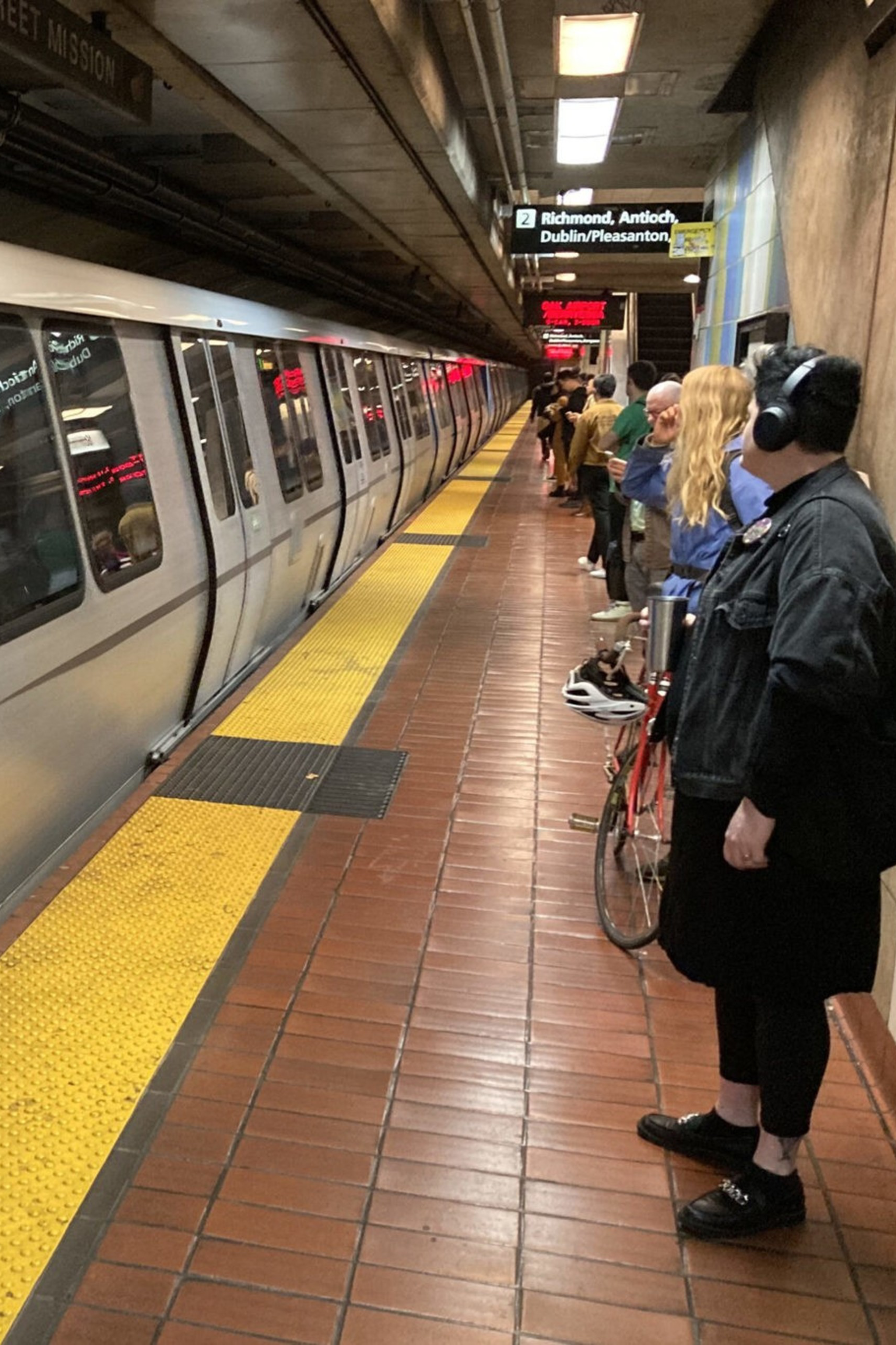For the third time in two months, the Bay Area Rapid Transit system experienced a brutal rush-hour breakdown Monday morning.
During the delay, which started before 6:30 a.m., Red and Green line service was completely suspended, leaving commuters in Berkeley, Richmond, Fremont, and more parts of the East Bay scrambling for alternative transportation into the city. The outage lasted three hours, during which only one track in the Transbay tube was operational. Some commuters on the remaining lines were delayed by an hour or more.
This follows another multihour meltdown caused by a computer system problem on a Friday morning last month and an August incident in which smoke filled a train while it was stopped in the Transbay tube on a Friday evening.
Trains sat at East Bay stations with their doors open Monday while they waited for their turn to cross beneath the bay. Despite announcements from some operators that other trains were close behind, commuters piled into the stalled cars until there was little room inside to move. At least one train was stuck at 12th Street Oakland station for more than 30 minutes.
The agency said there was “an equipment problem on the track,” but the precise cause of Monday’s disruption is under investigation, agency spokesperson Chris Filippi said.
“The service BART provided this morning was not good enough for our riders,” Filippi said via email. “It’s essential that we improve reliability, especially as our ridership increases.”
He added that the August and September incidents were not related to each other. BART’s alerts and advisories webpage (opens in new tab) shows there was planned rail replacement work over the weekend, but spokespeople did not say whether it contributed to Monday’s slowdown.
Riders were not pleased.
“Ridiculous how many of these issues occur during peak commute times,” one user wrote on X (opens in new tab).
Others found a silver lining amid the inconvenience.
“Not to justify @SFBART (opens in new tab)’s lousy service and incompetence this morning, but I want to call out the driver’s good announcements,” posted Dorit Reiss (opens in new tab), a UC Berkeley law professor. “It’s not her fault that BART is managed badly.”
With BART in desperate need of additional funding, transit experts said the outage was a preview of what the future holds: fewer trains, longer waits, and less reliable service.
“Without new and sustained funding, BART’s financial deficit will force the agency to make cuts that would be catastrophic for the Bay Area,” said Laura Tolkoff, transportation policy director for the urbanist think tank SPUR.
Tolkoff said that the agency’s annual budget deficit could climb to as high as $385 million by July 2026.
Bay Area residents may vote next year on a sales tax that would provide needed funding. The state may also provide a $750 million bridge loan, although the details are up in the air.
A failure to secure this funding would reverberate out from BART, Tolkoff said; Bay Bridge traffic would get worse, parking more competitive, rideshare prices higher, and buses more crowded. It’s a nightmare to contemplate — and the status quo is already not great.
“This can’t keep happening,” Tolkoff said.

